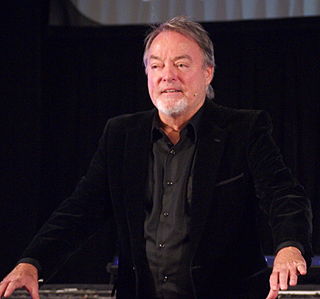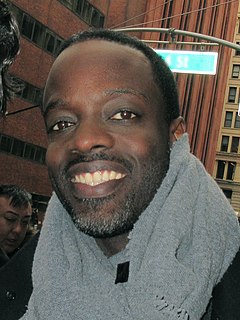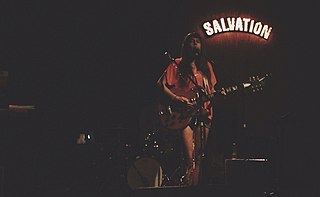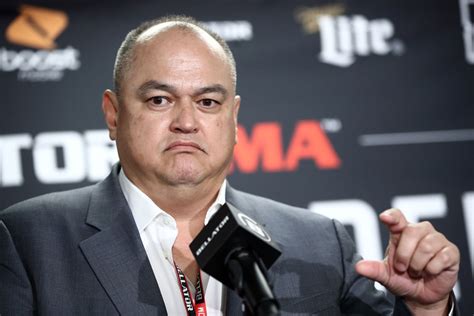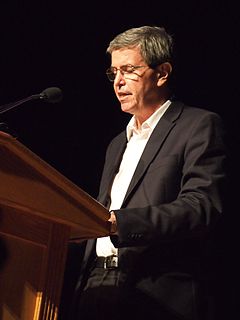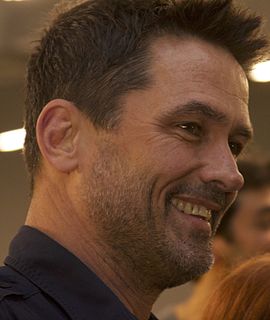A Quote by Mark Edward
I think the artists of the recession will end up being a very strong force in the future. They learned about survival.
Related Quotes
I realized that the artists who managed to fight through this recession have a better shot at longevity than most. The recession was a test of your resolve and passion. I think as we come out of these rough times we will be more adept at survival and will have gained the skills necessary to make a long fruitful artistic career. There will still be those that fade away but we are more likely to grow and bend with the times and prosper.
White artists have made millions of dollars off music they stole from black artists. I don't blame all the white artists. I'm a huge Stevie Ray Vaughn fan, and he was always very gracious about where he learned his music. But a lot of the time, you'd think the white guys thought it up. Hey, hasn't anyone heard of Muddy Waters?
It seems that for all of the artists signed to a major, there exists the same amount of artists that are struggling to break through to the surface within the label. I think, ideally, we'd end up with a very well connected competent indie team that will be along with us for the ride, however long that ride may be.
I had grown up. I had learned that being a woman was knowing when to stand firm and when to compromise. I had learned to laugh and weep; I had learned that I was weak as well as strong. I had learned to love. I was no longer a rigid, upright tree that would not flex and bow, even though the gale threatened to snap it in two; I was the willow that bends and shivers and sways, and yet remains strong.
The Psychological Recession is the cluster of feelings that the present is really scary and the future will likely be worse. It comes from the sense you have no control over what's happening to you and you don't see a way to get your life back under control. It's the feeling that life is unfair; you paid your dues, you worked hard, and you ended up naked and vulnerable. There is no comfort to be found in the dismissal of the Psychological Recession as being just an idea; it is a real phenomenon with real consequences, all of them bad.
I think for us, we don't feel like the future of music is in the act of being a record company. We feel like the future of the music business is in empowering artists to have better and better tools to communicate with their fans. We want to be people who are saying to artists, "Look, you don't need that company over there to release your album. You can do it this way." Almost more of a band partnership than a label-artist relationship. Not about ownership of content, but about empowerment.
A society that puts equality — in the sense of equality of outcome — ahead of freedom will end up with neither equality nor freedom. The use of force to achieve equality will destroy freedom, and the force, introduced for good purposes, will end up in the hands of people who use it to promote their own interests.
There is some rationale backing Kim Jong-un's actions, which are survival - survival for his regime, survival for his country. And he has watched, I think, what has happened around the world relative to nations that possess nuclear capabilities and the leverage they have, and seen that having the nuclear card in your pocket results in a lot of deterrence capability. The lessons that we learned out of Libya giving up its nukes and Ukraine giving up its nukes is, unfortunately, if you have nukes, never give them up.
I've done my share of reading about Abraham Lincoln, throughout my life, and he wasn't always carved in stone. He was a human being. He was a very thoughtful, self-educated, complex, magnanimous human being, who was very, very strong, very smart and very canny, with a very strong sense of what was right and what was wrong. Through all that, he's become an icon, over the years, and some of his warmth and humanity has been lost. You don't tend to think of Lincoln as this warm, funny person, but he was.
I try to not think too much about how stuff gets seen as it's being done by a woman. Because if you think about it, then you end up thinking about how you're acting, and if you are thinking about how you're acting, then you are preoccupied and you're going to end up being insincere. You're kind of not present.
